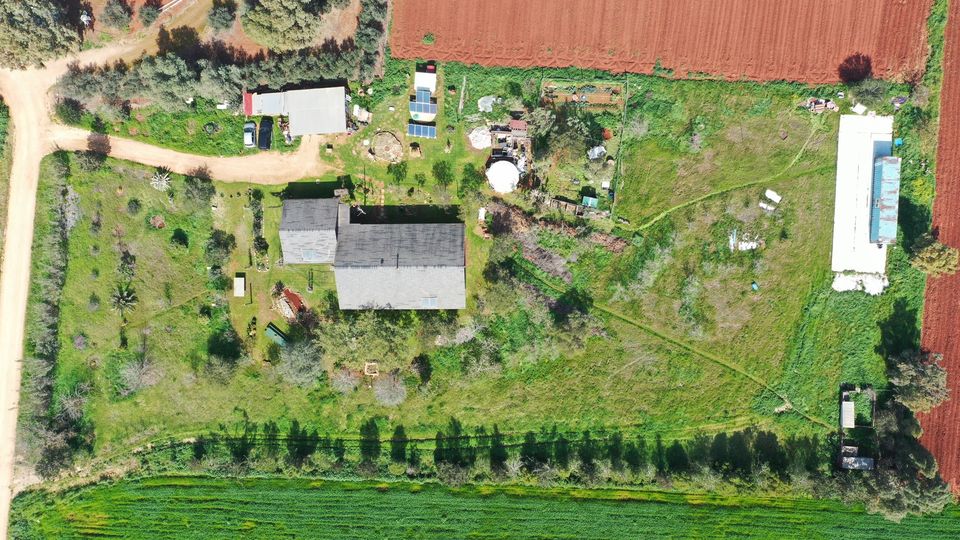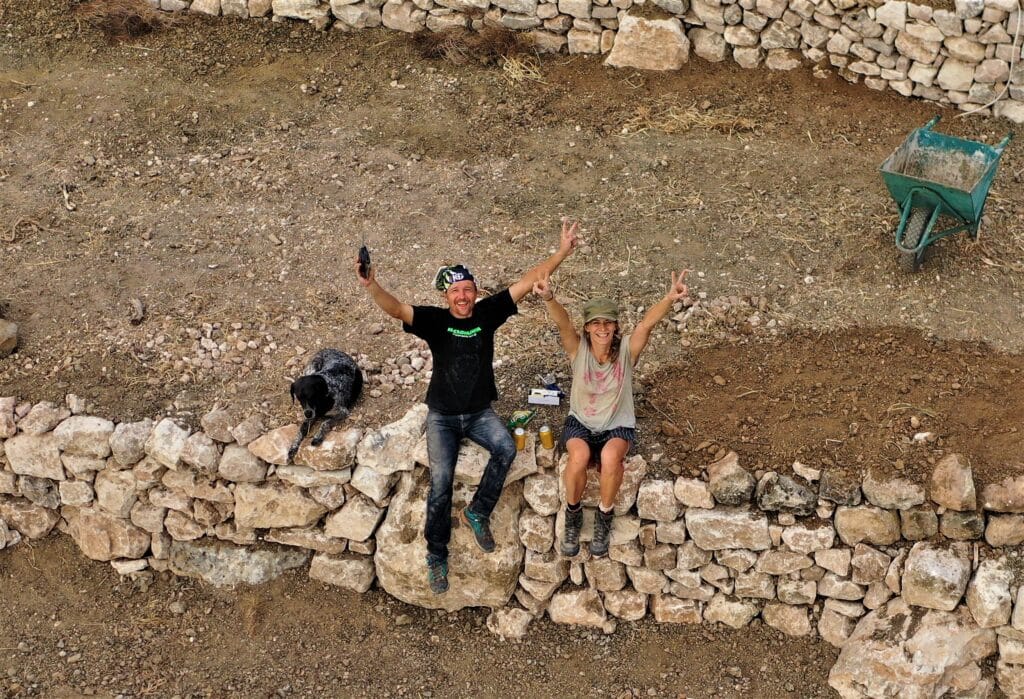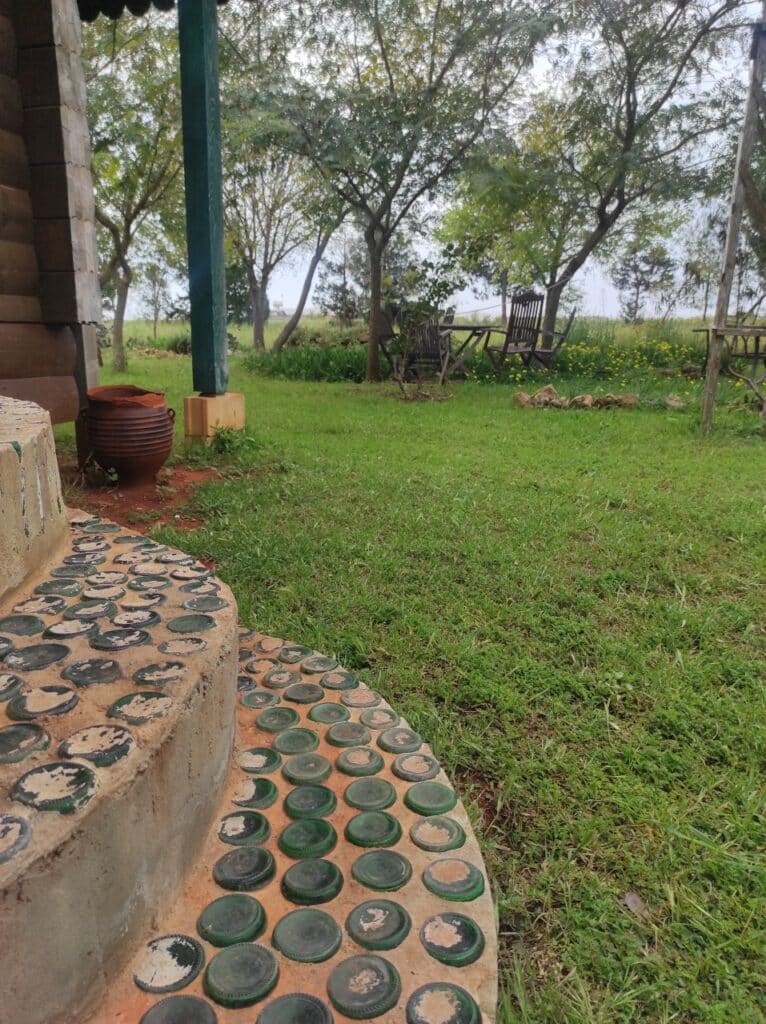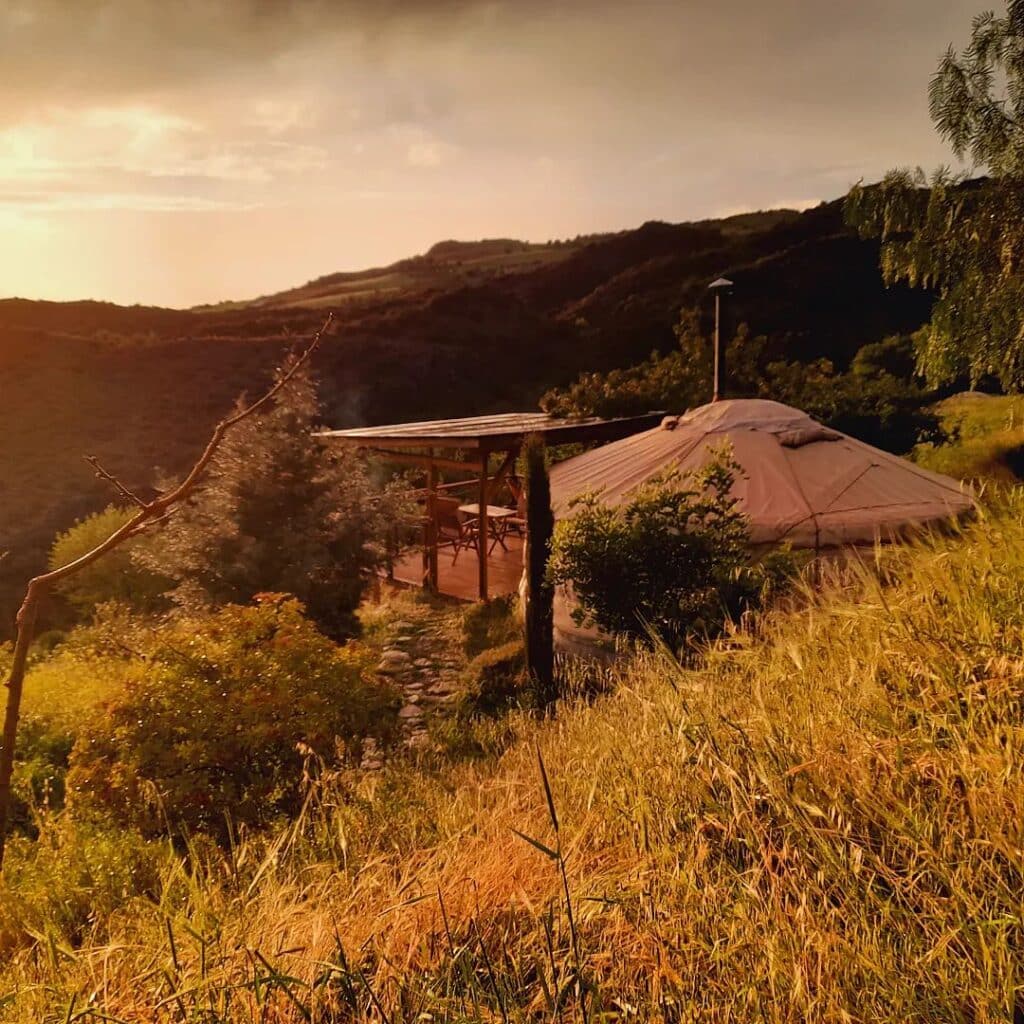But start-up and replacement costs mean it’s not all plain sailing
On a day in late winter, having skirted the buffer zone and willed my little Toyota Aygo through what felt like endless mud roads, I arrived at Filo Terra, Phil Ogden’s off-grid homestead, feeling like I must be well and truly in the boonies.
“You should have told me I needed a jeep!” I joked. Turns out I was four minutes from the village.
“It’s impossible in Cyprus to be anywhere away from civilisation by more than 10-15 minutes,” Phil laughed, greeting me with a warm hug. He’s right, of course, but standing outside his wooden log house surrounded by trees, grass and chickens, it is easy to imagine otherwise.
Phil, a carpenter by trade, landed in Cyprus by sheer serendipity, working as a deckhand on a yacht whose owner lived on the island. He has stayed here for over 30 years – the last ten of them fully self-sufficient on a 7,000 square metre piece of land he bought as a field.
“I planted 400 trees,” he tells me. “Fourteen different varieties.”
What made him choose this lifestyle?
Phil doesn’t hesitate.
“I’d had enough,” he says simply. “I just wanted peace and quiet, away from things.”
Despite this mildly misanthropic statement, Phil is a gracious host, anything but curmudgeonly. He shows me his electrical set-up, ten PV panels and eight 6V batteries connected in parallel. This system is off the main supply electricity grid and so the power is free, after the initial outlay for panels and batteries, which will also need replacing.
Phil’s system is usually enough to power the five-bedroom home and cabin he built but he recently upgraded with an automatic generator system (after the previous one blew up) for stretches of days with insufficient sunlight.
The whole thing has been a steep learning curve, Phil readily admits, with some costly mistakes along the way but he shrugs it off stoically. “You don’t know what you don’t know.”
Setting up his own energy system was part practical necessity and part quasi-political. “I don’t want to be dependent on flawed systems,” he explains.
For Phil, this impulse is about much more than energy and runs the gamut of food, water, health and even social norms.
“People have become so selfish. They’ve been indoctrinated to live a certain way,” he says. “I don’t want to live that way. Take food, for example. Food is grown to be sold, not to eat. I want food grown to eat.”
Phil shows me around the 30 by 20 metre plot where his wife, Jenny, who has a green thumb, grows food communally with neighbours, using permaculture techniques.
I ask Phil whether he feels any obligation to reach out and convince others about what he clearly views as a better way to live. Phil does offer courses online but suffers no grand ambitions of saving the world.
“Look, you can live by example, but there’s no guarantee anyone will follow your example,” he says ruefully, then adds with a laugh, “It’s a lot easier to fool people than to convince them they’ve been fooled – Mark Twain. You can quote me on that!”
Pawel Sikorski, another off-gridder who has also been at it for ten years running Yurts in Cyprus B&B in Simou, agrees.
“Knowing what I now know, I would connect to the grid if I could,” he tells me as we sit down to coffee in his cosy adobe kitchen.
I’m a little surprised to hear this. In many ways, Pawel shares Phil’s outlook on health, real food and the recondite impulse to nudge the world towards more conscious living.
Yurts in Cyprus may very well be the most bona fide eco-tourism facility on the island. It uses grey water recycling and composting toilets, and Pawel supplies free water to festival guests in reusable cups. Pawel himself single-handedly built 800m of dry-stone terrace walls and planted over 200 trees.
“The start-up cost for off-grid electric is high, the waste produced when batteries, panels and turbines wear out… the environmental and ethical damage involved in battery and panel production… they cancel out any carbon conservation,” Pawel says pointedly.
Does he think big energy, then, is more sustainable than individual or community off-grid systems?
“It’s not black and white,” Pawel, who initially like Phil, went off-grid out of practical necessity, tells me.
Vassilis Kyprianou owner of Riverland Bio Farm in Kambia is unequivocal. Seeming to comfortably bat for both teams, he advocates for organic, local food and renewable energy, and owns two commercial PV parks connected to the grid. His farm currently does not use or require batteries for storage.
He sells all the electricity he produces (double what the farm uses) to the authorities. Tucked away in a wilder corner on his land, he does have a caravan running off a modest, autonomous set-up.
What would happen if everyone lived off grid?
“What would happen to all the battery waste?” he retorts. “Especially in Cyprus where we can’t even manage to properly recycle paper and plastics, let alone lead and lithium. Perhaps we’d export it to Israel…” he trails off.
I find myself wondering if he’s right – that regulated, centralised storage and other proposed upgrades to ramp up the island’s renewable energy capacity at breakneck speed, will be less environmentally destructive or unethical, in terms of sourcing and disposing of the required raw materials.
The inexorable already-visible march of large PV parks colonising the island’s fertile agricultural lands, with their ensuing soil erosion and biodiversity loss, does not seem to bode well.
Might it be that the erstwhile desire for sustainability has been hijacked by an increasingly monopolistic, Big energy, Big food, Big health, and that this paradigm is just here to stay?
The long time off-gridders’ comments have convinced me that the question is moot. Yes, big everything is here to stay. The vast majority of people genuinely do not have the option to unplug from it, even those not held back by the psychological factor of ‘convenience’ inertia.
Still, there’s something undeniably appealing in the apparent freedom from big structures that off-grid living affords. Perhaps it is simply its rare note of authenticity, something many of us seem to crave.
In his essay, ‘They’re Just not Jaded,’ Charles Eisenstein argues that the conversion of natural, social, cultural and spiritual capital into money, essentially converting everything from small to big, is eroding more than the environment – it’s eroding the ties that bind communities together.
Impersonal institutions and anonymous specialists render us less tied to our neighbours, Eisenstein says, and this, ultimately, is an erosion of the humane, the human.
So where does that leave off-gridders? Perhaps it leaves us with quiet community-building without angst. Perhaps it’s just a matter of going about ways of living more ‘beautifully’ without taking to a loudspeaker to convince others about it.
I am reminded of a quote by Anne Lamott: “Lighthouses don’t go about looking for ships to save.”
An apt quote for the likes of Phil Ogden, who has recently put his beloved homestead on the market and is off to new adventures – buying a small yacht and sailing even further away.










Click here to change your cookie preferences